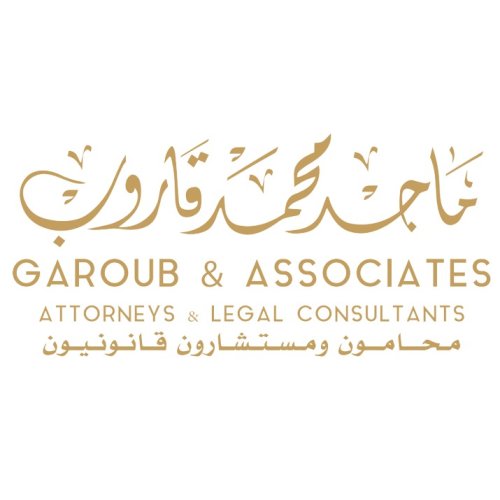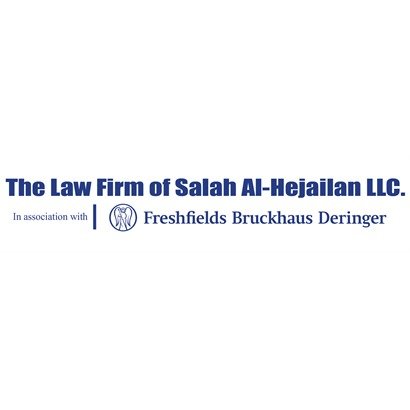
Best Restructuring & Insolvency Lawyers in Jeddah
Share your needs with us, get contacted by law firms.
Free. Takes 2 min.
List of the best lawyers in Jeddah, Saudi Arabia

About Restructuring & Insolvency Law in Jeddah, Saudi Arabia
Restructuring and insolvency laws in Jeddah, Saudi Arabia, are governed primarily by the Saudi Bankruptcy Law, which came into effect in 2018. These laws provide a legal framework for managing financial distress, either at an individual or corporate level. The regulations aim to balance the interests of debtors and creditors, encourage the rehabilitation of viable businesses, and facilitate smooth exits for those that cannot be saved. With Jeddah being a major commercial hub, awareness and understanding of restructuring and insolvency regulations is crucial for business owners, investors, and individuals facing financial difficulties.
Why You May Need a Lawyer
Legal challenges involving restructuring or insolvency can be complex due to the specialized procedures, tight deadlines, and potential disputes among creditors and debtors. You may need a restructuring and insolvency lawyer in Jeddah for several reasons, such as:
- Your business is unable to meet its financial obligations and you want to explore restructuring options.
- You are an individual facing personal insolvency and need guidance on your legal rights and obligations.
- You are a creditor seeking to recover debts from an insolvent debtor.
- You are involved in a partnership or joint venture facing insolvency issues.
- There are cross-border financial issues, especially if some assets or creditors are located outside Saudi Arabia.
- You are considering entering into a preventive settlement, financial restructuring, or liquidation as set out in Saudi law.
- You need assistance navigating filings and proceedings with relevant authorities, including the Bankruptcy Committee or the courts.
An experienced local lawyer can guide you through the available procedures, protect your rights, and help develop the best legal and financial strategies for your situation.
Local Laws Overview
Saudi Arabia’s Bankruptcy Law is the primary legislation governing restructuring and insolvency in Jeddah. The law covers individuals, companies, and non-profit entities. Here are key aspects of local laws and procedures you should be aware of:
- Preventive Settlement: A mechanism allowing debtors to reach an agreement with creditors before they default, under court supervision.
- Financial Restructuring: Formal proceedings to help viable businesses reorganize their debts under the supervision of a bankruptcy trustee and the courts.
- Liquidation: The process of selling the debtor’s assets to pay creditors when a business cannot be rescued.
- Role of the Bankruptcy Committee: This governmental body oversees bankruptcy cases, trustees, experts, and the Central Bankruptcy Register.
- Automatic Stay: Upon commencement of bankruptcy proceedings, creditors’ actions to collect debts are generally halted, giving debtors time to negotiate or restructure.
- Creditor Rights: Creditors have the right to vote on restructuring plans and participate in proceedings according to the priority set by law.
- Transparency and Public Notice: Filings and certain decisions are published in the Central Bankruptcy Register to ensure transparency.
- Penalties for Fraud or Misconduct: The law includes provisions to address asset concealment, fraud, or preferential payments.
These regulations are designed to foster a fair, efficient, and predictable restructuring and insolvency process in Jeddah.
Frequently Asked Questions
What is the difference between restructuring and insolvency in Saudi law?
Restructuring refers to legal processes that allow a financially distressed entity to reorganize its debts and business structure, with the goal of continuing operations. Insolvency is the state where an individual or business is unable to pay debts as they become due, often leading to liquidation or bankruptcy proceedings.
Who can initiate bankruptcy proceedings in Jeddah?
Both debtors and creditors can initiate bankruptcy proceedings. In addition, certain governmental bodies may also petition for bankruptcy in specific circumstances.
What types of insolvency procedures are available?
The main procedures are preventive settlement, financial restructuring, and liquidation. The appropriate procedure depends on the circumstances and eligibility of the debtor.
What is the role of the Bankruptcy Committee?
The Bankruptcy Committee supervises the implementation of bankruptcy laws and regulations, manages the Central Bankruptcy Register, appoints and controls trustees and experts, and monitors case progress.
Can foreigners or foreign companies use the insolvency procedures?
Foreigners and foreign companies can use Saudi insolvency procedures if they have assets, operations, or significant business activities in Saudi Arabia, and they meet the requirements under Saudi law.
How long does a typical restructuring or insolvency case take?
Timeframes vary depending on the complexity of the case, type of procedure, and court workload. Simple preventive settlements may take a few months, while complex restructurings or liquidations may take longer.
Are director or manager liabilities affected by insolvency?
Directors and managers have specific legal duties, especially when insolvency is suspected. Breaching their obligations can result in personal financial liability or penalties, especially in cases of fraud or asset concealment.
What are the rights of creditors in insolvency cases?
Creditors have rights to be notified of proceedings, to vote on restructuring proposals, to receive payment according to priority, and to challenge certain decisions or fraudulent transactions in court.
How is liquidation handled under Saudi law?
In liquidation, a trustee is appointed to sell the debtor's assets and distribute proceeds to creditors based on legal priorities. The process is overseen by the courts and the Bankruptcy Committee.
Do bankruptcy or insolvency filings become public record?
Yes, certain details are entered into the Central Bankruptcy Register and made available to the public to promote transparency and protect interested parties.
Additional Resources
If you require more information or support regarding restructuring and insolvency in Jeddah, the following resources may be helpful:
- Saudi Bankruptcy Committee: The key government body overseeing bankruptcy and insolvency procedures.
- Ministry of Commerce: Provides official information about commercial and insolvency laws in Saudi Arabia.
- Central Bankruptcy Register: The online platform where bankruptcy cases, notices, and procedures are published.
- Local Chambers of Commerce: Offer business support and information for entities facing financial difficulties.
- Licensed Legal Practitioners: Registered lawyers in Jeddah who specialize in restructuring and insolvency matters.
Next Steps
If you are facing financial distress, or you are a creditor or interested party in a restructuring or insolvency matter in Jeddah, the following steps are recommended:
- Gather all relevant financial and legal documents before seeking advice.
- Consult a licensed lawyer in Jeddah with experience in restructuring and insolvency law to discuss your situation and options.
- Determine which legal procedure best fits your circumstances, with your lawyer’s guidance.
- Initiate the appropriate legal filing, if necessary, with assistance from your lawyer to ensure compliance with all requirements and deadlines.
- Communicate openly with stakeholders, including creditors or business partners, while keeping records of all interactions.
- Attend all required hearings and cooperate fully with trustees, experts, and the Bankruptcy Committee during the process.
Taking early action and seeking professional legal advice are essential for protecting your interests and achieving the best possible outcome in a restructuring or insolvency situation in Jeddah, Saudi Arabia.
Lawzana helps you find the best lawyers and law firms in Jeddah through a curated and pre-screened list of qualified legal professionals. Our platform offers rankings and detailed profiles of attorneys and law firms, allowing you to compare based on practice areas, including Restructuring & Insolvency, experience, and client feedback.
Each profile includes a description of the firm's areas of practice, client reviews, team members and partners, year of establishment, spoken languages, office locations, contact information, social media presence, and any published articles or resources. Most firms on our platform speak English and are experienced in both local and international legal matters.
Get a quote from top-rated law firms in Jeddah, Saudi Arabia — quickly, securely, and without unnecessary hassle.
Disclaimer:
The information provided on this page is for general informational purposes only and does not constitute legal advice. While we strive to ensure the accuracy and relevance of the content, legal information may change over time, and interpretations of the law can vary. You should always consult with a qualified legal professional for advice specific to your situation.
We disclaim all liability for actions taken or not taken based on the content of this page. If you believe any information is incorrect or outdated, please contact us, and we will review and update it where appropriate.
















